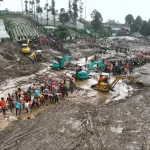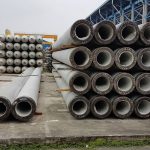Liga Asuransi – Dear readers, how are you? I hope your business is running well as planned.
To our new readers, welcome the risks management and insurance blog. Here we discuss in more detail the risks management and insurance in various industries that may be related to your business.
This time we will discuss risk management and insurance in the construction industry, specifically the civil engineering consultant.
As a consultant, there are several risks to consider. One significant risk is the potential for conflicts of interest, where personal interests or client relationships may bias the consultant’s advice.
Another risk is the possibility of making errors or oversights in advice, which can lead to negative consequences for clients.
If you are interested in this article, please share it with your friends so they can understand as much as you do.
THE SERVICE OF CIVIL ENGINEERS
Before we go further, let’s understand the service of the civil engineering consultant.
Civil engineers are professionals in designing, constructing, and maintaining infrastructure, including buildings, bridges, roads, water supply systems, sewage treatment plants, airports, and many other structures.
Some of the critical services that civil engineers provide include:
- Planning and Design
Civil engineers are responsible for the planning and design of infrastructure projects. This includes determining the appropriate materials, technologies, and construction methods and conducting feasibility studies and cost estimates.
- Construction Management
Civil engineers oversee the construction process to ensure the project is completed on time, within budget, and according to the design specifications. They also manage the labor and materials required for the project.
- Maintenance and Repair
Civil engineers are responsible for the maintenance and repair of infrastructure systems. This includes identifying and addressing issues such as cracks, leaks, wear and tear, and implementing preventative maintenance measures.
- Environmental and Sustainability Consulting
Civil engineers can provide consulting services for environmental and sustainability, including identifying and developing strategies to minimize ecological impacts. They may also design and implement sustainable infrastructure systems, such as green buildings and water conservation systems.
- Geotechnical and Structural Engineering
Civil engineers are also involved in geotechnical and structural engineering, which involves analyzing soil and rock properties beneath infrastructure systems and designing and analyzing the structural elements of buildings and other structures.
WHO ARE THE CLIENTS OF THE CIVIL ENGINEERS?
A wide range of individuals and organizations may need the services of a civil engineer. Some examples include:
- Developers and Contractors
Developers and contractors are often the primary clients of civil engineers. They hire civil engineers to design, construct, and manage infrastructure projects like buildings, roads, bridges, and water supply systems.
- Governments
Local, state, and federal governments also require the services of civil engineers to design and construct public infrastructure projects, such as highways, bridges, airports, and water treatment plants.
- Architects
Architects work closely with civil engineers to design structurally sound, safe, and functional buildings.
- Landowners
Landowners may hire civil engineers to help them determine the feasibility of a construction project on their property and design and manage the construction process.
- Non-profit Organizations
Non-profit organizations may require the services of civil engineers to help design and construct infrastructure projects that benefit local communities, such as schools, hospitals, and community centers.
- Industrial and Commercial Clients
Industrial and commercial clients may need the services of civil engineers to design and construct infrastructure projects that support their operations, such as factories, warehouses, and distribution centers.
HOW TO VALUE THE SERVICE OF AN CIVIL ENGINEER CONSULTANT?
The following are just a few examples of how customers may value the quality of a civil engineer consultant. The specific factors that customers value will depend on the nature and scope of the project, as well as the needs and priorities of the customer.
Customers value the quality of a civil engineer consultant in several ways, including:
- Technical Expertise
Customers value civil engineer consultants who have a deep understanding of the technical aspects of their field. This includes knowledge of the latest technologies, best practices, and regulatory requirements.
- Creativity and Innovation
Customers value consultants who bring fresh ideas and innovative solutions to their projects. Civil engineer consultants who can find creative solutions to complex problems are highly valued.
- Communication Skills
Customers value consultants who can communicate effectively with all stakeholders involved in a project. This includes explaining technical information in a way that non-technical stakeholders easily understand.
- Professional Liability Insurance
Professional liability insurance gives the customer confidence that the civil engineer consultants are qualified and protects themselves from errors and omissions made during the service.
- Project Management Skills
Customers value consultants who have strong project management skills. This includes the ability to manage budgets, schedules, and resources effectively, as well as the ability to manage risk and ensure compliance with regulatory requirements.
- Client Service
Customers value consultants who are responsive, reliable, and provide excellent customer service. This includes being available to answer questions and provide guidance throughout the project lifecycle.
- Reputation
Customers value consultants with a strong industry reputation for providing high-quality services and delivering successful projects.
ERRORS AND OMISSIONS THAT CIVIL ENGINEERS MAY BE INVOLVED IN
The following are just a few examples of the kinds of errors and omissions that civil engineers may be involved in.
Civil engineers must take appropriate measures to minimize the risk of errors and omissions, such as conducting thorough quality control checks and ensuring compliance with relevant regulations and standards.
- Design Errors
This can include mistakes made during the design process, such as inaccurate calculations, incorrect assumptions, or failure to consider important factors.
- Construction Errors
This can include mistakes made during the construction process, such as improper installation of materials, failure to follow design specifications, or failure to comply with regulatory requirements.
- Material Selection Errors
This can include errors in the selection of materials used in a project, such as using materials that are not suitable for the intended purpose or using materials that are not compatible with other materials used in the project.
- Code and Regulatory Compliance Errors
This can include failure to comply with building codes and regulations, such as obtaining necessary permits or approvals or meeting safety standards.
- Inspection and Testing Errors
This can include errors in the inspection and testing of infrastructure systems, such as failure to detect defects or other issues that could compromise the safety or integrity of the structure.
- Communication Errors
This can include errors in communication between the civil engineer and other stakeholders involved in the project, such as failure to communicate important information or changes in design or construction plans.
LEGAL CASES ON CIVIL ENGINEERS
Below are a few legal cases where civil engineers have been sued for errors and omissions. It is important to note that civil engineering is a complex field, and mistakes and omissions can occur for various reasons. Civil engineers must adhere to rigorous safety standards and quality control measures to minimize the risk of errors and omissions.
There have been several high-profile cases where civil engineers have been sued for errors and omissions. Here are a few examples:
- Hyatt Regency Walkway Collapse
In 1981, the Hyatt Regency hotel in Kansas City, Missouri, experienced a catastrophic failure when two walkways collapsed, killing 114 people and injuring over 200. The design of the walkways was found to be flawed, and the engineering firm responsible for the design was sued for negligence.
- Boston’s Big Dig
The Big Dig was a large-scale infrastructure project in Boston, Massachusetts that involved constructing tunnels and bridges to alleviate traffic congestion. The project experienced various issues, including leaks and collapses, and the engineering firms responsible for the design and construction were sued for errors and omissions.
- Minneapolis Bridge Collapse
In 2007, the I-35W Mississippi River bridge in Minneapolis, Minnesota, collapsed, killing 13 people and injuring 145. The engineering firm responsible for the bridge’s design was sued for negligence, and an investigation found that a design flaw was one of the primary causes of the collapse.
- Flint Water Crisis
The Flint water crisis occurred in Flint, Michigan, when lead-contaminated drinking water was supplied to residents due to changes in the city’s water source. Civil engineers were sued for failing to address the issue adequately and not providing residents safe drinking water.
- Oroville Dam Spillway Failure
In 2017, the Oroville Dam in California experienced a failure of its main spillway, which caused a large-scale evacuation of residents downstream. The engineering firms responsible for the design and construction of the dam were sued for negligence.
WHY DO CIVIL ENGINEER CONSULTANTS NEED PROFESSIONAL LIABILITY INSURANCE?
Professional liability insurance is a crucial safeguard for civil engineer consultants. It can protect their reputation and assets and provide financial support to handle any legal issues arising from errors and omissions in their work.
Civil engineer consultants need professional liability insurance to protect themselves and their clients in case of errors and omissions in their work. Professional liability insurance, or errors and omissions (E&O) insurance, covers damages and legal fees associated with claims of professional negligence, errors, or omissions.
Here are a few reasons why civil engineer consultants need professional liability insurance:
- Protection against lawsuits
In case of any errors or omissions in their work, civil engineer consultants may face lawsuits from their clients or other parties who have suffered financial or physical harm due to their mistakes. Professional liability insurance can provide financial protection, covering legal fees and damages awarded in court.
- Requirement by clients
Many clients may require civil engineer consultants to have professional liability insurance before they can start working on a project. This is because it provides security and assurance that the consultant can cover any potential losses resulting from errors or omissions.
- Peace of mind
Even the most experienced and careful civil engineer consultants can make mistakes. Professional liability insurance can provide peace of mind, knowing that in case of any errors or omissions, they have protection and support to navigate any legal or financial issues that may arise.
WHY DO CIVIL ENGINEERS NEED THE SERVICE OF AN INSURANCE BROKER?
Arranging insurance by contacting insurance companies directly or through agents is not recommended because it can lead to limited insurance coverage, uncompetitive premium costs, the use of less secure companies, and the absence of claim settlement assistance.
Civil engineer consultants need the service of an insurance broker to arrange their insurance because insurance brokers have the expertise and experience to help them find the right coverage and negotiate the best terms and premiums.
Insurance brokers work on behalf of the client, not the insurance company. They can offer unbiased advice and guidance to help civil engineer consultants make informed decisions about their insurance coverage.
Here are some reasons why civil engineer consultants may need the service of an insurance broker to arrange their insurance:
- Expertise
Insurance brokers have specialized knowledge and expertise in the insurance industry, including understanding the unique risks and liabilities faced by civil engineer consultants. They can provide valuable advice and guidance on the types of coverage most appropriate for their needs.
- Access to insurance markets
Insurance brokers can access various insurance markets and help civil engineer consultants find the right coverage at a competitive price. They can also negotiate with insurance companies on behalf of their clients to ensure they get the best possible terms and premiums.
- Customized solutions
Insurance brokers can provide customized insurance solutions tailored to the specific needs of civil engineer consultants. They can assess their risks and liabilities and recommend coverage that addresses their unique circumstances.
- Claims support.
In case of any claims, insurance brokers can provide support and guidance to help civil engineer consultants navigate the claims process and ensure that they receive fair and timely compensation.
Insurance brokers can support civil engineer consultants in arranging their insurance coverage. They can help them find the right coverage, negotiate the best terms and premiums, and provide ongoing support and advice.
One of the leading insurance brokers in Indonesia focusing on the construction industry is L&G Insurance Brokers.
For all your insurance needs, please call L&G now!














